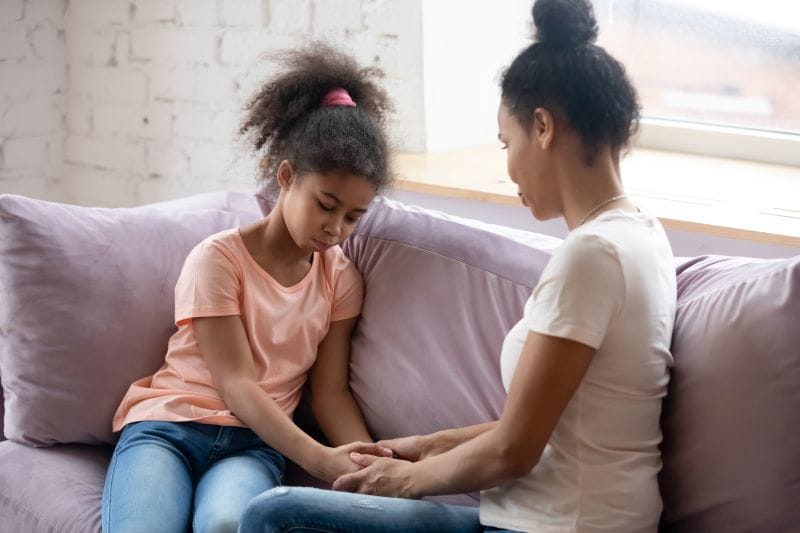Helping children cope with losing a loved one
When I planned this topic for this issue’s article, I couldn’t have imagined that a friend I love and admire would pass away unexpectedly, leaving behind two young daughters. My heart is aching thinking of her girls having to go on without their mom and of her poor husband, who must process his pain while also being there for his children.
While each family’s journey towards healing is unique, experts who work with grieving families offer insights to help navigate it. We spoke with Clinical Social Worker Danielle Wondrak, head of the Blue Butterfly Family Grief Center at Empath Health, which serves children ages 4-18 who are grieving the death of someone special.
What advice would you offer a parent who must explain the death of a loved one to their children?
Danielle Wondrak: First, I always ask, “Does the child know the truth about how the person died?” My biggest tip is to tell the most honest truth, which is age-appropriate for the child. To do that, you need concrete language, no euphemism.
For example, if the child’s grandmother died due to cancer, we encourage the caregiver to say, “Grandma died of cancer,” not, “Grandma was very, very sick and passed.” It is also essential to establish the permanence of the situation. The child needs to understand that when someone dies, they can’t come back.
Why is it so important to tell the truth and in an age-appropriate way?
Danielle Wondrak: Children need to know the age-appropriate truth because if we don't provide appropriate language, they often make up stories that are way worse than what happened. Providing the facts and truth early on sets the child up for the ability to begin grieving and start the healing journey.
We can’t expect them to start processing appropriately if they don't know the real story. Caregivers often think that keeping the truth from the child is a form of protection, but what we frequently see is that the child begins to resent them when they find out how their person died.
I imagine it will be a long journey towards healing, and it will come with challenges.
Danielle Wondrak: Grieving someone you love is normal. Some of the frequent symptoms we see in children are difficulty sleeping, changes in eating patterns, relationships with family and friends, focus and school performance, and mental health.
Sometimes, as caregivers, we don’t have all the answers, and that is okay. Sharing that with your child and seeking information or additional resources is key. Programs like Blue Butterfly at Empath Health are designed to help the caregiver navigate these challenges while prioritizing the child’s grief journey.
How does your bereavement program help?
Danielle Wondrak: Without proper support, children coping with death may exhibit a range of negative behavioral responses, including depression, anxiety, substance abuse, declining academic performance and, in extreme cases, even suicidal thoughts or actions.
At the heart of the program are peer support groups led by masters-level clinical counselors. Children who attend Blue Butterfly benefit from being heard, understood and equipped to cope with their grief, ultimately improving their emotional resilience and mental health.
Besides support groups for grieving families, I know that you also host camps just for children. When is the next one?
Danielle Wondrak: We are excited to offer Camp Blue Butterfly, a three-day overnight bereavement camp for children ages 9-18… Sept. 5, 6 and 7 in Manatee County. The camp experience is designed to thoughtfully introduce children to the power of grief support and to explore their feelings in a safe, therapeutic and holistic environment.
As with all Blue Butterfly programming, Camp Blue Butterfly is free for children experiencing the death of a special person. We encourage those interested to watch our social media and website for more information and registration.
READ MORE:
- 6 Ways Child Life Specialists Care for the Whole Family
- Tampa Family Health Centers: Behavioral Health Services
iStock-1309117567 | Originally published in the May 2025 issue of Tampa Bay Parenting Magazine.


